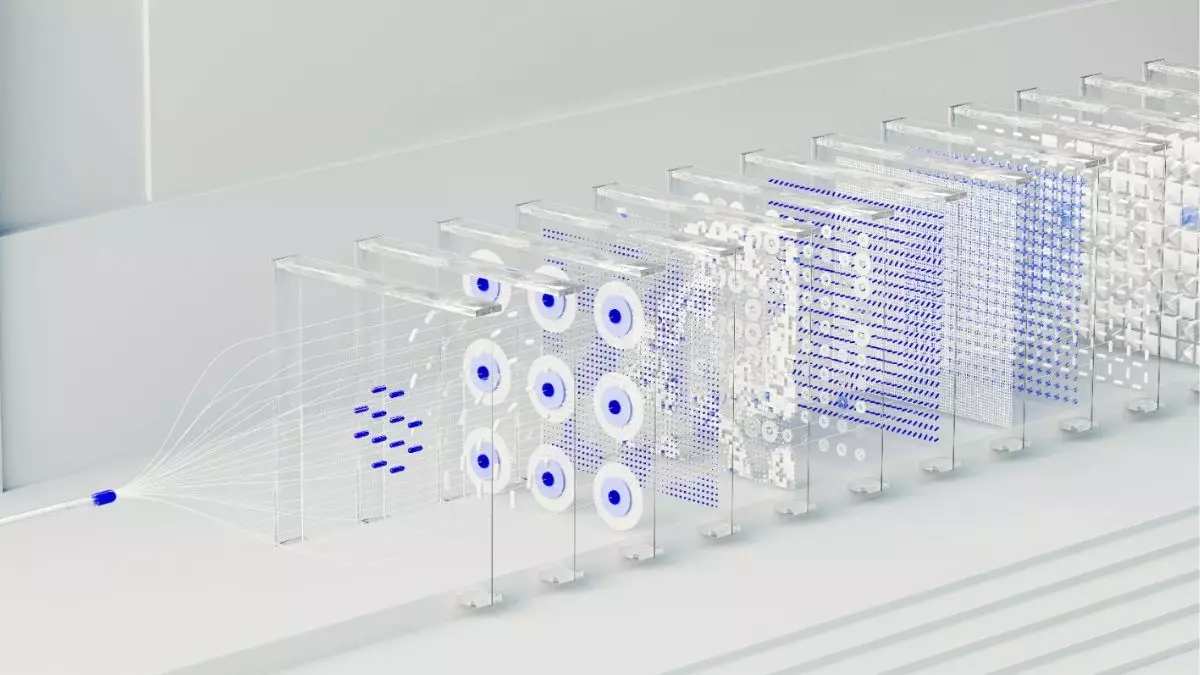As technology rapidly evolves, the intersection of artificial intelligence (AI) and robotics has emerged as a game-changer in various fields, particularly in scientific research. Among the contenders in this groundbreaking arena is Tetsuwan Scientific, a startup based in San Francisco that aims to redefine how laboratory experiments are conducted. Co-founded by CEO Cristian Ponce and CTO Théo Schäfer, Tetsuwan Scientific is pioneering a dual-faceted approach to integrate intelligent software with robotics in an effort to formulate a fully automated scientific discovery process.
Founded in 2023, Tetsuwan Scientific operated in stealth mode for approximately 18 months while it meticulously developed its innovative technology. Emerging from the shadows in November of the same year, the startup has since captured attention, not just for its ambitious goals but also for securing a successful seed funding round. The core objective? To conjure an “AI scientist” capable of conducting experiments autonomously. Currently, Tetsuwan Scientific is collaborating with La Jolla Labs, focusing on RNA therapeutic drug development—a testament to its applied research initiatives and future potential.
One of the pivotal challenges addressed by Tetsuwan Scientific revolves around the existing paradigm of laboratory automation, which has predominantly emphasized high volume experimental throughput. This focus often neglects the need for adaptability and versatility in scientific research. Traditional lab robotics, while effective in standardizing processes, require comprehensive programming to execute specific protocols. Unfortunately, this results in an assembly-line mentality that sidelines the creative aspects of scientific inquiry.
As Tetsuwan Scientific elucidates on its website, traditional automation solutions fail to grasp the underlying scientific intent. Therefore, machines can’t perform experiments independently or innovate; they merely execute predetermined tasks. This gap presents an opportunity for revolutionized design, wherein AI and adaptable robotics work symbiotically to not only follow orders but also understand goals and adapt methodologies.
A crucial element of Tetsuwan Scientific’s vision is leveraging generative AI models to bridge the communication gap between human intent and robotic action. CEO Cristian Ponce emphasizes the utility of large language models (LLMs) in this context. By allowing researchers to communicate their scientific objectives in a more intuitive manner, LLMs can significantly reduce the complexity associated with programming robotic responses. This not only streamlines processes but also democratizes scientific experimentation.
Further augmenting the capabilities of AI in this domain, the Retrieval-Augmented Generation (RAG) framework addresses a prevalent concern known as “AI hallucination.” This term refers to the errors or inaccuracies generated by AI systems when interpreting instructions or context. By implementing refined frameworks, Tetsuwan Scientific mitigates the risks associated with deploying AI in high-stakes environments such as scientific labs.
The physical design of Tetsuwan Scientific’s robots marks a departure from traditional lab assistants. Their large, square-shaped, glass-like structures are engineered to evaluate experimental results and adapt methodologies autonomously, minimizing the requirement for human involvement. Equipped with advanced sensors and powered by AI-driven software, these robots are designed to understand essential technical standards, such as calibration and liquid classification.
The company is still in its nascent stages, making the prospect of autonomous robotic AI scientists—a vision of fully automated scientific processes—an ambitious goal on the horizon. Nonetheless, the potential for creating an intelligent entity capable of not just conducting experiments but also formulating new hypotheses is transformative.
Tetsuwan Scientific stands at the brink of a revolution in scientific research, embodying the ambitions that come from marrying cutting-edge technology with the age-old quest for knowledge. By addressing present limitations in laboratory robotics through an innovative blend of AI software and adaptive hardware, the company not only highlights the importance of understanding scientific intent but also lays the groundwork for future breakthroughs in automation. While challenges remain, the road to fully autonomous AI scientists teems with promise, potentially leading us into a new era of scientific discovery.



Leave a Reply